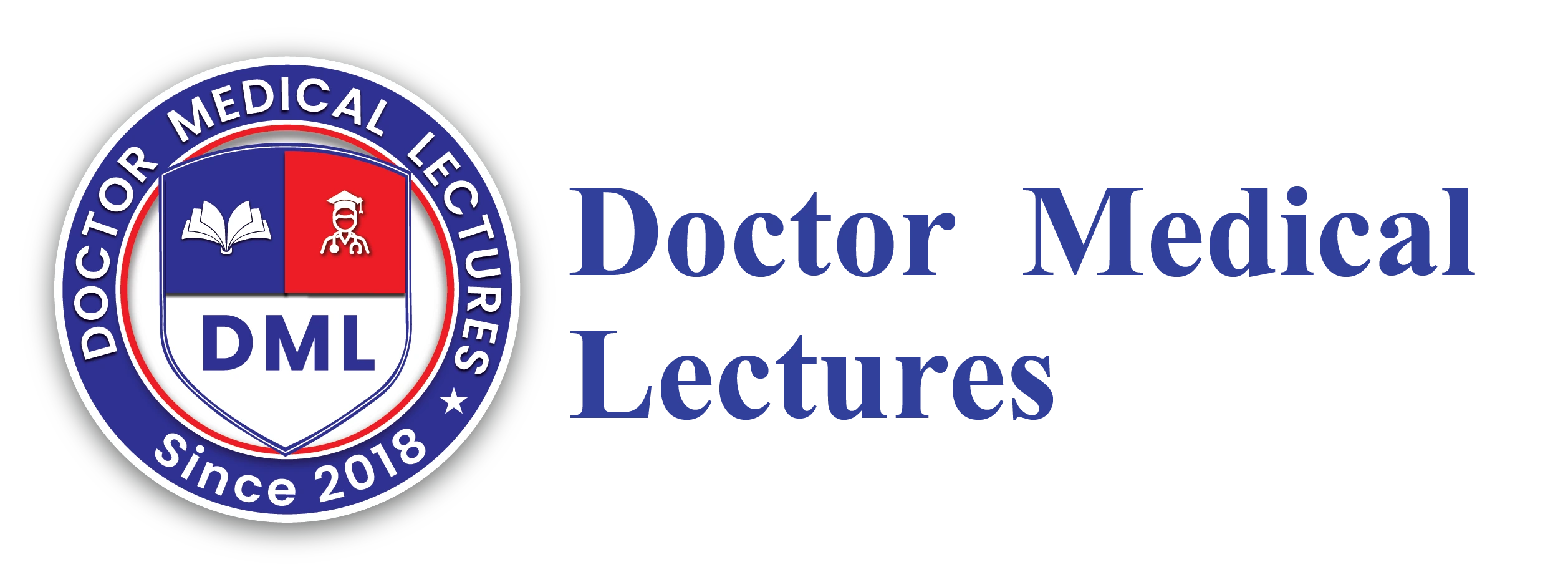Introduction
The USMLE Step 2 exam is a crucial milestone for medical students and graduates who want to practice medicine in the United States. This exam is designed to assess clinical knowledge and the ability to apply it to real-life patient scenarios. Unlike Step 1, which focuses on basic sciences, Step 2 CK emphasizes clinical decision-making, patient management, and problem-solving skills. Understanding the subject breakdown is essential for efficient preparation, as it allows students to allocate their study time wisely and focus on high-yield areas. Preparing strategically can help reduce exam stress and improve performance.

In addition to knowledge, Step 2 evaluates critical thinking and the ability to prioritize care under time constraints. Familiarity with the types of questions, common topics, and exam format can make the difference between a passing score and a high score. This guide explores each major subject, provides preparation strategies, and answers frequently asked questions to help students succeed. By following a structured approach, candidates can approach Step 2 CK with confidence and clarity.
What is USMLE Step 2?
USMLE Step 2 exams focus mainly on clinical knowledge examination, or Step CK, to test candidate ability to apply medical knowledge during patient care scenarios. Formerly, Step 2 also included clinical skills evaluation or Clinical Skills (CS). Unfortunately this component has since been dropped. Step 2 CK involves multiple-choice questions presented as clinical scenarios which require diagnostic and management decisions. The exam not only tests knowledge, but also clinical reasoning, judgment and understanding of patient safety issues. Candidates for certification exams in internal medicine, surgery, pediatrics, psychiatry, OB/GYN and preventive medicine undergo comprehensive testing across an extensive list of topics including internal medicine, surgery, pediatrics psychiatry OB/GYN as well as preventive medicine.
Internal Medicine
Internal Medicine accounts for roughly 40-50% of Step 2 CK exam. Participants in this section will be assessed on their understanding of managing adult patients with complicated medical conditions or are suffering from chronic diseases. The most important topics in cardiology the field of pulmonary medicine, gastroenterology endocrinology, and nephrology as well as infectious disease medicine comprise arrhythmias, heart failure Ischemic heart disease as well as valve problems as key topics to be focused on for answers to questions about cardiology. Endocrinology includes thyroid, diabetes and adrenal issues. Endocrinology questions center around diabetes, thyroid disorders, adrenal dysfunctions and sepsis/HIV infections while tuberculosis questions cover such infections as well as more prevalent viral/bacterial/fungal ones requiring interpretation lab and imaging results; preparation requires merging clinical knowledge with diagnostic reasoning while understanding lab imaging results using question banks/vignettes which is highly effective.
Surgery
Surgery comprises about 10 to 15 percent of the Step 2 CK. It focuses on postoperative care as well as postoperative care. General surgical topics are gallbladder disorders, and trauma. Questions on orthopedics test the knowledge of fractures, dislocations, as well as compartment syndrome. Vascular surgeries are a subject that covers peripheral artery diseases and aneurysms as well as pediatric surgery, which covers the typical surgical issues among children. Situations requiring emergency surgery typically include acute abdominal pain examination, trauma, or surgical complications. The second step of CK is a focus on clinical decision-making, instead of rote memorizing of anatomy. Candidates should be aware of what is required for a procedure as well as how to deal with the risks, as well as how to evaluate post- and preoperative results. Training in case-based exercises and studying procedures can increase the likelihood of being ready for this part. The integration of surgical experience with rational thinking is vital to the success.
Obstetrics and Gynecology
OB/GYN represents about 10 percent of the Step 2 CK. It is a way to assess the health of women, pregnancies, labor, as well as Gynecologic issues. Important topics include prenatal health as well as labor management, high risk pregnancy, as well as complications. Gynecologic problems, including menstrual irregularities and infertility problems with the pelvic area, as well as infections are often investigated. Topics in reproductive endocrinology include PCOS Menopausal, PCOS, as well as hormone therapy. The most common questions require an understanding of the the clinical picture, proper diagnostic tests, and preparation. Labor complications, pregnancy emergencies and preventive health are among the most high-yielding fields. An understanding of the obstetrical and gynecologic treatment is vital for making clinical decisions. Training in case-based scenarios and integrating information from OB/GYN together with other medical disciplines boosts general performance. Candidates must focus on the most common ailments, risk assessments as well as guideline-based treatment.
Psychiatry
The field of psychiatry is about 5–10% of the test, which is used to assess the diagnosis and treatment of mental health conditions. The most important topics are mood disorders, such as bipolar and depression, anxiety disorders such as panic disorder as well as OCD and schizophrenia and psychotic disorders. Substance abuse disorders as well as child and adolescent mental health, which includes ADHD as well as autism-related disorders are also examined. Candidates should use the DSM-5 diagnostic criteria and comprehend the appropriate pharmacologic as well as non-pharmacologic treatment. The questions often contain complex scenarios that require a thorough examination of the history of the patient, their mental health, and the risk factors. Knowing the options for therapy, their the effects of therapy, as well as longer-term care is vital. A successful preparation process includes case-based training as well as reviewing the guidelines for psychiatric treatment. The integration of primary care and psychiatry situations is frequently tested during the second step of CK.
Preventive Medicine and Public Health
Public health and preventive medicine are a smaller part of step 2 CK, but they are still important. These include vaccine timetables, screening tests modifications to lifestyles, infection prevention and safety for patients. Knowing the national and CDC guidelines regarding preventive healthcare is crucial. The candidates may be tested for the screening for cancer as well as cardiovascular risk assessments, as well as methods to minimize mistakes in medication. A focus is put on the promotion of health screening, risk assessment, as well as the counseling of patients. The majority of questions involve applying the information about health and population to personal patients. Implementing preventive medicine in clinical situations demonstrates an extensive comprehension of managing patients. The focus on preventive strategies with high yields will help improve scores. It is recommended that candidates practice applying these strategies to clinical vignettes.
Exam Format and Question Types
USMLE Step 2 The CK exam is computer-based that has eight blocks of forty questions that total approximately 318 questions. Each block comes with a sixty-minute time-limit as well as the overall time for the exam is about nine hours with breaks. The exam will include multiple-choice questions including clinical vignettes, imaging-based exams including ECGs and X-rays as well as pathology slides. The vignettes in clinical vignettes mimic real-life situations that require diagnostic thinking as well as management and safety issues for the patient. It is important to manage time in order for completing each block effectively. The practice of using question banks can help to improve speed and precision. Examiners should concentrate on the interpretation of the clinical information, laboratory results as well as imaging studies. The format is a good way to reduce anxiety and enhances the efficiency on test day.
High-Yield Topics for Step 2 CK
Certain subjects are deemed high yield due to their frequent appearance in the Step 2 CK. They include cardiovascular conditions including heart failure and the ischemic heart condition as well as pneumonia, pulmonary embolism in diabetic and diabetic emergencies abdominal pain that includes acute appendicitis, asthma in children as well as congenital conditions pregnant complications, as well as psychosis-related emergency situations. The focus on these areas allows effective preparation, and increases the likelihood of scoring highly. The integration of knowledge across disciplines is frequently tested through the form of clinical videos. Utilizing question banks as well as exam practice is very efficient in acquiring high yield ideas. Examining lab guidelines, laboratory interpretations and managerial strategies improves the clinical thinking. The order in which these subjects are discussed ensures your preparation is precisely targeted and successful. Regular practice and repetition is crucial to keep high-value information in mind.
How to Prepare for USMLE Step 2 CK
The preparation to prepare for Step 2 CK requires a systematic and disciplined method. Start by creating a thorough plan of study, which allocates time in accordance with the significance of each topic. Utilize question banks such as UWorld to test your knowledge on exam-like questions and mimic real exam conditions. Concentrate on learning concepts rather than memorizing as you review topics with high yield frequently. Tests that simulate time help to improve endurance and time management in preparation for the exam. Review your mistakes in depth to pinpoint weaknesses and then review pertinent areas. The integration of clinical experience in study sessions helps improve the ability to solve problems. Learning resources like review textbooks, online lectures as well as flashcards, are extremely helpful in revising. Becoming consistent with your study habits and regularity improves retention and improves performance. A well-planned preparation helps candidates take on Step 2 CK with confidence.

When Do You Take USMLE Step 2?
The Step 2 exam is generally completed after the completion of basic clinical rotations during the third or fourth years in medical school. The exam is taken following practical experience helps with understanding situations in real life as well as applying the theoretical information. Scheduling the exam around your clinic rotations lets you integrate experiences gained from practice with the study material. The early scheduling allows enough time to study and prevents the stress of last minute preparation. Certain students might opt to complete the step 2 prior to their completion to gain the most from their clinical experiences. The clinical rotations reinforce high yield areas, improving the retention of students and their confidence.
How to Pass USMLE Step 1 in 2 Months
The ability to pass the step 1 within two months takes concentration, discipline as well as a structured study plan. Make sure you focus on high yield topics like pathology, physiology as well as pharmacology and microbiology. Utilize question banks to test multiple-choice tests as well as clinical Vignettes. Concentrate on areas that are weak by self-assessment or test-taking that is timed. Utilize flashcards and books for review for quick recall of important concepts. A daily study schedule and regular revision is essential for maintaining the memory.
Conclusion
Understanding the USMLE step 2 subject breakdown is essential to prepare effectively and efficiently. Internal Medicine, Pediatrics and Surgery are the core subjects. Other topics of importance include Psychiatry and OB/GYN. The study plan should focus on topics that are high yielding, exam strategies and clinical examples. By using reliable sources, reviewing weak areas and practising timed problems, you can improve your performance. The success of the exam depends on your ability to maintain consistent study habits, and manage stress. The Step 2 CK milestone can be difficult, but attainable with proper planning and preparation. Mastering clinical skills and knowledge is crucial to prepare you for residency or future practice.
FAQs
How to prepare for USMLE Step 2 CS?
Although Step 2 CS is discontinued, practicing patient interaction, physical exams, and communication skills is valuable for clinical competency and future evaluations.
When do you take USMLE Step 2?
Step 2 CK is usually taken after completing core clinical rotations in the third or fourth year, allowing practical experience to reinforce learning.
How to pass USMLE Step 1 in 2 months?
Focus on high-yield topics, practice extensively with question banks, take timed practice tests, and revise consistently for optimal results.
How to prepare for USMLE Step 2 CK?
Create a structured study plan, focus on high-yield topics, use question banks, and simulate exam conditions to strengthen knowledge and clinical reasoning.
